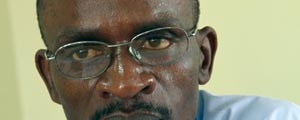
TODAY, climate talks enter the most critical stage with African negotiators, political advisers and government ministers eager to come up with a deal.
Wisdom Mdzungairi
After a week of vacillating, civil societies and campaigners allege that the developed countries are persistently blocking the UN climate negotiations in Warsaw, Poland with regard to loss and damage mechanism and climate finance for the affected and vulnerable countries.
What would support for climate change adaptation look like if it were designed to meet the needs of those most vulnerable to the effects of climate change?
Though no major decisions are expected at the conference, the level of progress could be an indicator of the world’s chances of reaching a deal in 2015.
That is the new watershed year in the UN-led process after a 2009 summit in Copenhagen ended in discord.
It might, for example, offer guaranteed wage employment to the rural poor in Zimbabwe or elsewhere, in return for their labour in creating check dams, and water-harvesting structures – precisely the kinds of public works that can also help to increase landscape-wide resilience to climate change, improve the livelihoods of those dependent on rain-fed agriculture, and even contribute to retaining soil carbon.
Or it might provide a social protection floor for nomadic herders in Kenya, Somalia, or Mongolia for when livestock losses during periodic bouts of harsh weather conditions exceed the level that can be covered under a commercial livestock insurance program.
- Chamisa under fire over US$120K donation
- Mavhunga puts DeMbare into Chibuku quarterfinals
- Pension funds bet on Cabora Bassa oilfields
- Councils defy govt fire tender directive
Keep Reading
Indeed, climate change is very, very scary stuff. And evidence is accumulating weekly, monthly as to how dangerous this will be. So there is a huge urgency that we get on with this.
The urgency of the problem was underlined in a recent report by the Intergovernmental Panel on Climate Change, the UN-sponsored body that provides the scientific basis for the negotiations.#
The IPCC in September said with more certainty than before that humans are warming the planet, mainly through carbon emissions from the burning of oil, coal and gas.
UN climate chief Christiana Figueres last Thursday said: “Global greenhouse gas emissions need to peak this decade, and get to zero net emissions by the second half of this century.”
The hard part is deciding how to divide those cuts. Since they began in 1992, the UN talks have been bogged down by disputes between rich and poor countries over who should do what.
The climate talks have been seen by many as a choice between clean and dirty energy, with civil society and youth groups heavily criticising the UN for allowing corporate sponsors and a ‘Coal and Climate’ conference on Monday last week to undermine the global call for a renewable energy transformation.
For a long time the US was seen as the biggest foot-dragger — it was the only industrialised country that didn’t join the Kyoto Protocol, a 1997 emissions deal.
I am not sure if America’s standing has improved under President Barack Obama, but he has increased fuel efficiency standards for cars and trucks, worked to boost energy efficiency in federal buildings, invested in green energy, and acted to cut emissions from power plants.
While many countries say the US should do more, increasing focus is falling on the world’s top carbon polluter, China, which is under pressure to fuel its economic development in a cleaner way than the US and other industrialised nations did.
But Beijing points to the West’s historical responsibility for having pumped carbon into the atmosphere since the industrial revolution took off in Britain in the 18th century.
Now a coalition of 500 African NGOs are urging African delegates to withdraw from the UN climate negotiations, after the process has so far failed to yield any new pledges on climate finance.
The Pan African Justice Alliance that represents 500 NGOs across Africa said the group had asked governments to walk out of the talks. A similar move at a UN climate meeting in Barcelona in 2009 brought the talks to a standstill.
The request reflects a growing frustration among developing countries that richer nations are not delivering on past pledges to raise the money that would help them to deal with climate change.
It appears the process as a whole is failing, with no progress on sourcing the $100 billion a year by 2020 promised by rich nations in 2009.
Africa is frustrated. We want to see money commensurate to what is needed to cope with climate change in Africa now.
This frustration has been exacerbated by obstacles from a perceived lack of interest from Australia, Canada, Japan and the US.
Instead of attending the UN discussions taking place in Warsaw, Australia environment minister Greg Hunt will stay at home to work on the government’s election pledge to repeal the carbon tax.
Japan has announced that it will revise its previous ambitious target of a 25% reduction on greenhouse gases according to 1990 levels to a 3,1% increase.
So developing countries must be really upset at what is happening, particularly at Japanese and Australian behaviour.
Sadly, separately, the US and the EU have also aggravated talks by blocking a proposal to use historical pollution levels to determine how much countries should be able to emit in the future. The proposal was supported by 130 nations, including Brazil and China.
How a ‘fair’ deal on climate change can be achieved is traditionally a point of contention in UN climate talks.











